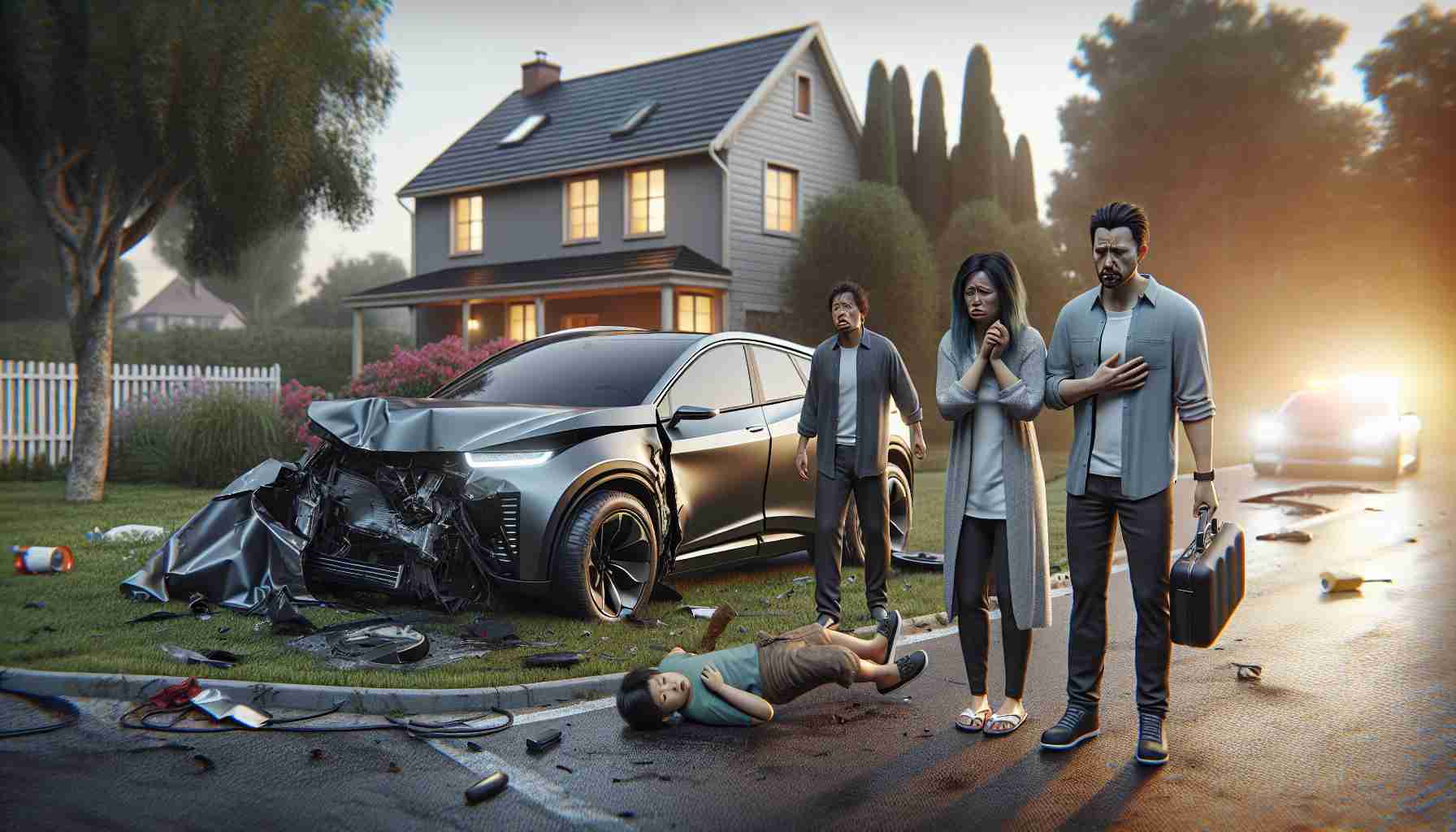An Electric SUV’s Accident Raises Safety Concerns
A grievous accident has resulted in an outcry over electric vehicle safety, after a family suffered the loss of three relatives when their electric SUV, known as the AITO M7, became involved in a deadly collision. The incident took place on a highway in Shanxi Province, China. The vehicle, affiliated with Huawei, was subject to scrutiny after the family claimed key safety features failed during the crash.
The accident, which occurred on April 26, claimed the lives of the driver, his toddler nephew, and his brother-in-law. It is reported that the adults could not exit the SUV due to malfunctions with the door system, while the brother-in-law was expulsed from the car and died on impact.
The driver’s sister disclosed that the nearly new AITO M7, which had been acquired for a significant sum, did not perform as expected in the crash. The car’s advanced braking system, designed to prevent such accidents, along with the airbags, reportedly did not deploy.
AITO has since stated that their vehicle’s airbags and battery were operational, suggesting that the investigation by local officials would uncover the precise causes of this tragedy. They maintain their cooperation with the authorities and urge the public to rely on these findings.
Amid this, there have been allegations of intentional suppression of accident-related content from the internet, casting a shadow over the transparency of the incident.
The partnership of Huawei and Seres birthed the AITO brand, which saw immediate success with thousands of units sold within the first month. Despite Huawei’s pivot from manufacturing cars to expanding its operating system outreach, this incident has placed a spotlight on the safety of their sophisticated technologies.
Electric Vehicle Safety in the Spotlight
The tragic incident involving the AITO M7 electric SUV has brought forward crucial questions regarding the safety of electric vehicles (EVs), particularly those emerging from new partnerships and brands. The death of three individuals in a single accident is not only a personal disaster for the family involved but has wider implications for the global auto industry.
Key Questions & Controversies:
– Reliability of Safety Features: The malfunctioning of critical safety systems such as door locks and airbags is at the heart of this tragedy. It raises questions about the reliability of sensor-based and automated safety features in electric vehicles compared to their mechanical counterparts.
– Accountability and Transparency: Allegations of information suppression deepen public concerns about corporate accountability and the transparency of investigations surrounding new technology implementations.
Challenges:
– The challenge for AITO and similar companies lies in proving the dependability of their vehicles. They must demonstrate not only through rigorous testing and certification but also through real-world performance that their safety features work as advertised.
– Regulators face the challenge of ensuring that new technologies are thoroughly vetted for safety before being allowed on roadways.
Advantages and Disadvantages:
– Advantages: Electric vehicles, like the AITO M7, often incorporate advanced technology aimed at preventing accidents and offer eco-friendly transportation solutions.
– Disadvantages: New technology can sometimes have unforeseen flaws that lead to catastrophic consequences, as potentially evidenced by this incident. In the wake of a tragedy, this can erode consumer trust and slow down the adoption of electric vehicles.
For more information on the companies involved, you can visit their official websites at the following links:
– Huawei Official Website
The industry and the consumers will be closely monitoring how AITO, Huawei, and regulatory bodies respond to this tragedy and what changes might be instituted to prevent future incidents. Such responses could influence public opinion and the rate of EV adoption worldwide.
